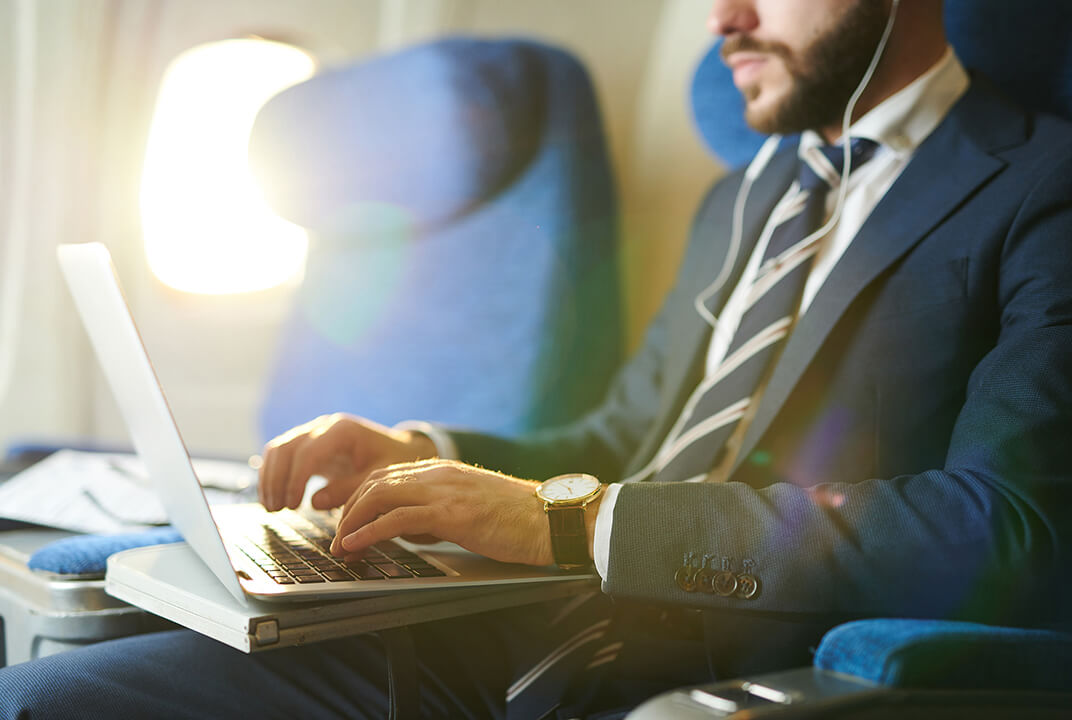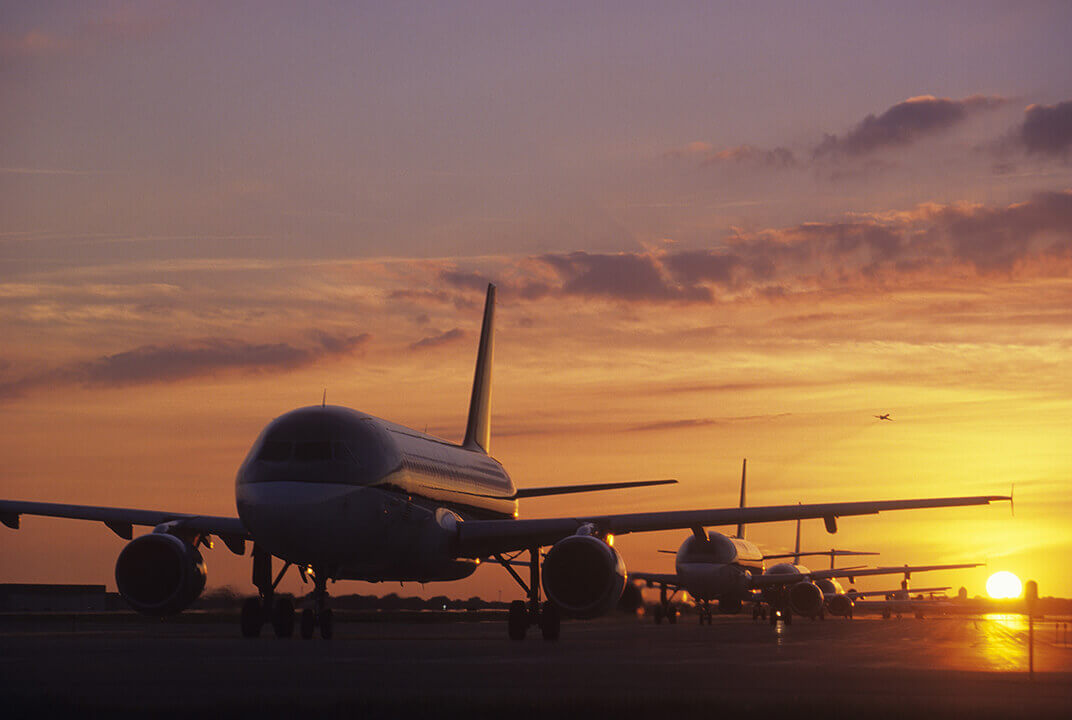Insight | Digital transformation key to profitable aviation recovery says FlightPlan survey
Digital transformation key to profitable aviation recovery says FlightPlan survey
Aviation
Results of global industry poll suggests recovery will be gradual but digital innovation, will be a catalyst.
After coming to a worldwide standstill almost overnight, the aviation industry has clearly been one of the major casualties of the COVID-19 pandemic. No one knows what the future looks like but the expectation is that when the industry emerges from this crisis it will look markedly different to the one that entered it.
However, despite the many challenges the sector faces, there is widespread optimism that the industry will survive, that any reduction in investment in passenger service innovation will only be short-term and that the trend of digital transformation – already a catalyst for the modernisation of aviation - will be critical to a sustainable and profitable recovery for the industry.
These are just some of the findings of a global interactive poll conducted as part of Inmarsat Aviation and the Airline Passenger Experience Association’s (APEX) pivotal online broadcast event, FlightPlan: Charting a Course into the Future.
Held at the end of April – a little over a month into lockdown – FlightPlan was a mammoth eight-hour virtual conference featuring leading figures from some of the sector’s most important companies.
As part of the event, Inmarsat carried out an industry-wide survey analysing the effects of the pandemic, possible routes to recovery and what a typical passenger journey could look like in the future. The poll ran until the end of June and was completed by more than 500 aviation professionals worldwide across a variety of roles.
A gradual and uneven recovery
The first thing to point out is that, according to the survey, aviation’s recovery from the hammer blow of COVID-19 won’t happen overnight. Nearly three quarters (74%) of respondents believe it will take 18 months or longer for the industry to recover.
This focus on a gradual return seems to reflect a broad consensus across the sector. Airbus has said the industry may not recover for 5 years, while IATA announced in May that it doesn’t expect 2019 RPKs to be exceeded until 2023.
The results of the poll suggest that the return however will not be uniform, with disparities across regions and types of flights. Almost nine in ten (85%) think domestic flights will return to full health quicker than international travel.
This seems to chime with similar analysis of COVID-19’s effects upon the industry. An Aviation Forecast Report by the global consulting services company ICF found that 60% of those polled in Asia thought the region would see a full recovery in less than 12 months. Whereas those polled in Europe and North America pointed to a recovery period of up to two years or more.
Business travel is predicted to recover faster than leisure travel (according to 69% of respondents), but perhaps not to the same level as before. The potential threat of a global recession, alongside the rise of video conferencing, are two reasons for a reshaped sector.
With questions of safety foremost in leisure passengers’ minds, it appears it will take longer for these flyers to feel confident about taking to the skies again. A lack of appetite for spending time in transit or stopping any longer than is necessary in airports also explains why 70% expect point-to-point travel to bounce back quicker than hub and spoke routes.
Low-cost carriers (LCCs) are expected to recover quicker than full service carriers (55% vs 45% respectively).
When respondents were asked whether governments had done enough to support the aviation industry during the last few months, this notion of an uneven global response to a worldwide crisis was widespread. Damningly, just 7% felt governments had done enough, suggesting there was frustration when it comes to state aid and bailouts.
A reassuring passenger journey
An immediate – and necessary – difference within the industry will of course be the passenger journey itself. A new range of health and safety guidance from industry bodies demonstrates that ensuring passenger safety – from robust traceability measures to establishing clear aircraft decontamination procedures, all designed to reassure flyers – is paramount.
Slower turnarounds, due to longer and deeper cleaning of planes (88% of those polled); thermal scanners (83%) and biometric check in and immigration (68%) are just some of the features respondents expect to see more of in the coming months. Contactless catering was highlighted by 57% as being important during the recovery period, and almost half (44%) expect to see empty middle seats as a common feature of the passenger journey in the coming months despite contrary predictions seen in parts of the media.
Connectivity trends enhanced
What the survey also demonstrates is that in mitigating the effects of COVID-19, aviation’s digital transformation is now more important than ever. The poll suggests that the current crisis will accelerate digital and connectivity trends that are already in motion.
Respondents believe that technologies such as data analytics, biometrics, Artificial Intelligence (AI) and the Internet of Things (IoT) will play a substantial role in returning the industry to future profitable growth.
These opinions echo what Inmarsat Aviation President Philip Balaam outlined during the FlightPlan broadcast. Then he argued that airlines that invested in these technologies as a priority would recover faster.
“Recovery will depend on a more effective, a more creative and a more digital approach. These are extraordinarily turbulent times for our industry. There will clearly be winners and losers. My conviction is that the survivors will take a strategic, agile and a technology-led approach, and they will be the ones to bounce back more quickly, and stronger,” he affirmed.
Such beliefs run in parallel with the findings of the subsequent FlightPlan survey. When asked to what extent respondents believed the current crisis would impact investment in passenger service innovation, 62% felt COVID-19 will only have a short-term impact.
Continuing the trend towards increased and enhanced connected services as a way of safeguarding the future of aviation would appear to be a priority.
A more sustainable industry?
With a worldwide economic downturn potentially threatening investment in green technology, there is little consensus in the poll about the impact of COVID-19 on aviation’s path to sustainability, with 36% believing the crisis will accelerate progress, while 47% think it will delay it.
Recent government bailouts have had some green strings attached – Air France being told that it must become the world’s “most environmentally friendly” airline in order to satisfy the terms of its €7 billion government bailout.
If, as predicted, the rise of digital technologies such as AI, data analytics, IoT do lead to a suite of operational efficiencies, a more sustainable industry should prove to be one pleasing by-product.
“This crisis is an opportunity for the industry to review and recommit to its sustainability targets,” comments John Broughton, Senior Vice President, Aircraft Operations and Safety at Inmarsat Aviation. “One of the likely outcomes that will aid this effort is airlines making moves to permanently retire less fuel-efficient aircraft. However, if we are to keep up this momentum, global governments must provide additional incentives, clearer guidance and invest more in green technology for aviation, including the modernisation of air traffic networks.”
Looking ahead
Finally, what does the future for the aviation industry look like? Will it recover? Pleasingly, despite just 13% of respondents believing the industry was prepared for the crisis, an overwhelming number (89%) think it will survive.
This suggests the industry needs to embrace the correct technologies to ensure the impact of any future crisis is not as severe as the turbulence wrought by COVID-19.
It’s also a point picked up by Inmarsat Aviation’s Vice President – and the co-host of FlightPlan – Dominic Walters. In praising the survey, he believes it also shines a timely light on the varying opinions around the COVID-19 recovery phase.
He says: “We have only taken our first steps towards recovery and there are clearly still challenges ahead. While airlines are braced for a slow but steady rebound, there is a true sense of optimism from the aviation community about the shape of the industry in this new world. The results show a strong desire to focus on accelerating recovery by embracing technology, an optimistic outlook for future investment in passenger experience and sustainability initiatives, and a commitment to rebuild an industry fit for the future.”
All of which neatly ties up the importance of the FlightPlan Survey. Aviation’s future might be a little different to what many envisioned. But this welcome dose of measured optimism following the thought leadership displayed at the FlightPlan broadcast event, demonstrates that a resilient industry, underpinned by digitalisation and passenger innovation, will eventually return to health.


